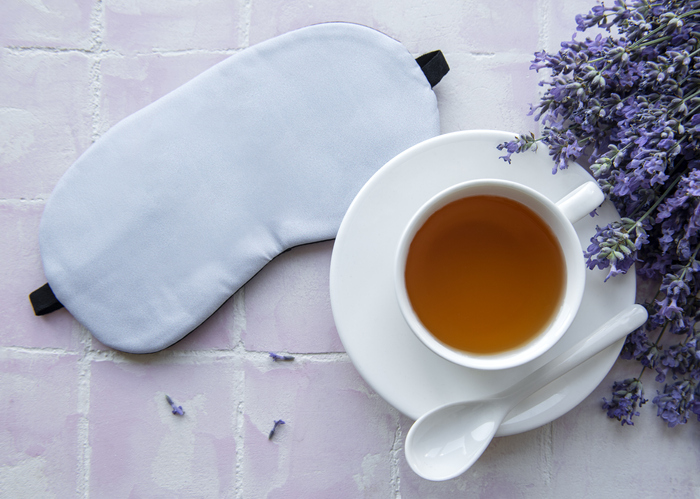Drink Your Way to a Better Sleep…With Tea

Get ready for a blog post that’ll put you to sleep (in a good way, we promise)!
Many people want to know if tea can improve their quality of sleep. They’re looking for an alternative to coffee they can drink late at night while also not completely wrecking their ability to rest. And this is a big deal, because around 70 million Americans report trouble sleeping.
So, can tea help you sleep? We’ll do our best to answer that question, as well as recommend some un-caffeinated teas you can try late into the evening. Let’s get started.
Can Tea Help You Sleep?
The short answer is, yes! Tea can help you fall asleep, but there isn’t a consensus among experts on why that is. (More on this in a moment.)
The Art of Tea points out both the act of making the tea and drinking it can help you relax. Think about everything you experience when you’re doing those things. The aroma from the cup as the tea is steeping. How warm the cup feels in your hands. The warmth in your body after you take that first sip. Those qualities help to reduce stress.
Before we move forward, we should note that we’re referring specifically to herbal teas, which do not have caffeine. If you drink black tea late at night, then you can expect the inherent caffeine in that drink to keep you up for a while.

“Herbal tea isn’t technically tea since it isn’t made from this plant,” wrote Today.com. “Instead, herbal teas are made from the roots, seeds, flowers and fruits of other plants and are naturally caffeine-free. So, don’t worry that these teas will keep you buzzing all night long.”
There’s still some debate as to the direct scientific link between tea consumption and quality of sleep, according to Live Science. Having said that, the website also notes that when people believe tea will help them relax, then drinking tea is more likely to help them do just that. That’s a pretty effective feedback loop!
What Types of Tea Should You Try?
So, what tea should you try? During our research, we found these teas cited on multiple websites, including Today.com:
· Lavender
Why these teas? Let’s look at a couple of them more closely.
Chamomile possesses an antioxidant called apigenin, which reduces anxiety and helps you sleep. Passionflower and lavender both have been connected to lowering the activity of certain brain cells, helping you to relax.

The Sleep Foundation notes that Valerian root has natural sedatives to help you sleep, and the German Commission E approved it as a method to promote healthy sleep.
Thankfully, you’ve got multiple options to try before you settle on your favorite late-night beverage.
Ready to Try Herbal Tea?
We’re ready to answer any questions you have about the connections between herbal tea and getting a good night’s rest. Come to our store—we’d love to talk more!

